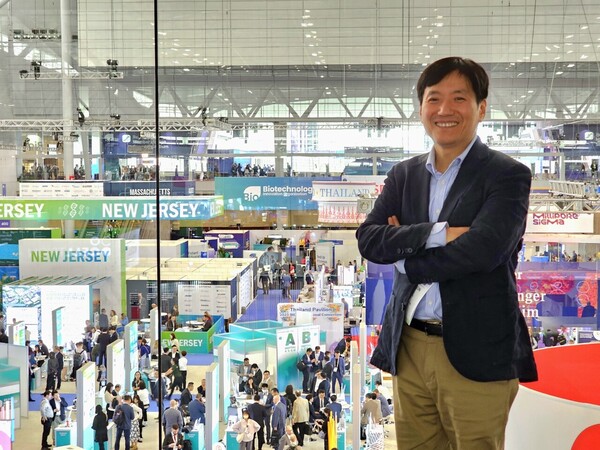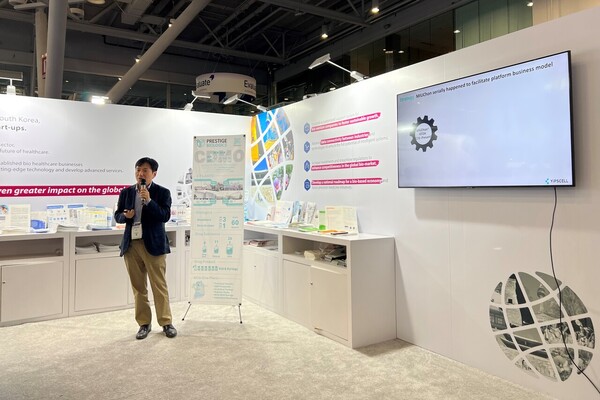Global interest is mounting in advanced biopharmaceutical products. One of the reasons is the emergence of blockbuster drugs in genetic and cell therapies, led by Kymriah, a CAR-T (chimeric antigen receptor T-cell) treatment. Recently, there has been more good news concerning stem cell therapy from the U.S.; “Osteoarthritis” has been selected as the first research project of the ARPA-H.
ARPA-H (Advanced Research Projects Agency for Health) has benchmarked DARPA (Defense Advanced Research Projects Agency), known for accomplishing impossible missions, and was one of President Joe Biden’s campaign pledges. ARPA-H's selection of osteoarthritis as its first challenge will likely positively impact companies working in the field.
ARPA-H has also announced its intention to develop a treatment for osteoarthritis through bone and cartilage regeneration. Various companies in Korea are exploring the possibility of treating osteoarthritis using stem cells.
One of the most noteworthy among them is YiPSCELL, a stem cell therapy-developing company founded by Dr. Ju Ji-hyeon, a professor of rheumatology at the Catholic University of Korea Seoul St. Mary's Hospital. The company sets itself apart featuring induced pluripotent stem cells (iPSCs).
Earlier this month, Ju attended the Bio International Convention 2023 (BIO 2023), a pharmaceutical and biotechnology industry exhibition in Boston, Mass., to present iPSC-based osteoarthritis treatment to Big Pharma.
Korea Biomedical Review met with CEO Ju to listen more to the domestic and international perspectives on advanced regenerative medicine and his future business plans.

Question: How have you come to participate in Bio 2023, and what discussions will you have here?
Answer: YiPSCELL is now growing. In the past, it was all about R&D. Still, now that we've gotten some traction, we're looking to move into other areas of the business, such as licensing out (L/O) and collaborative R&D. The main purpose is to create a network and see what strategies will be advantageous when we advance to the U.S. or Europe in the future with the pipeline of new drugs we are developing.
In addition to pre-arranged one-on-one meetings with Big Pharma, I will attend an IR briefing organized by KoreaBio and make my own IR pitch.
Q: Every year, more and more Korean biopharma companies attend BIO USA. What are the benefits of attending this event?
A: From our company's standpoint, it's a way to meet with companies that can transfer their pipelines. In particular, events like BIO Europe and BIO USA are held once or twice a year, and I think it is a kind of trust-building to have business meetings at each event to update and explain the development status.
No matter how good your skills are and how well you present them, it's not like you're going to grab a $1 billion deal one day. If you meet with them every year and update them on your data and show them that you're growing, they'll be able to make a decision.
The best part about coming to BIO USA is that we know exactly what Big Pharma is looking for. For example, we have a general idea of what diseases Big Pharma is interested in, but we don't understand what they need about those diseases. There's only so much you can find on a company's website or elsewhere. We can only know about these by meeting with BD executives or working-group officials.
And that such in-depth content is something you can't get unless you network and get friendly with them. For instance, antibody and cell therapies have different specialized needs. So partnering events are a great opportunity to get very specific about what the other company is looking for. And once you know that, you can realize that the company you want to work with needs this technology so that you can focus more on that.

Q: Where are you in developing MIUChon, YiPSCELL’s osteoarthritis drug candidate?
A: There are two main types of arthritis. One is rheumatoid arthritis, caused by an autoimmune disease that destroys the joints. The other is degenerative arthritis, caused by degenerative changes that damage the cartilage and break down the joints.
From a medical viewpoint, there are already many good immunosuppressive and inflammatory drugs for rheumatoid arthritis. There are not many unmet needs because the existing therapies can cover (treatment) to a certain extent. Degenerative osteoarthritis, on the other hand, has huge unmet needs. That’s because there is still no way to regenerate damaged cartilage or fundamentally cure it. That’s a reality in Korea and the U.S.
Concerning MIUChon, we have submitted a phase 1 IND (Investigational New Drug) application) to the Ministry of Food and Drug Safety and are awaiting approval. We first submitted the IND in 2021 and are currently responding to requests for supplemental data. In November, we will finally have the data needed to complete the dossier. We expect to receive IND approval as early as the end of this year or early next year at the latest.
Q: There have been various attempts to develop stem cell therapies but what makes MIUChon different?
A: MIUChon is the world's first iPSC-based injectable chondrocyte therapy. We have confirmed the possibility of cartilage regeneration through animal experiments, and the effectiveness of cartilage regeneration through the use of heterologous cells will be confirmed through clinical studies.
Unlike previously tried MSC (mesenchymal stem cell) therapies, iPSC-based cell therapies are derived from a single cell (colony), so consistent quality and therapeutic effects can be expected. In particular, MIUChon uses chondrocytes that are no longer differentiated, eliminating the possibility of tumorigenicity.
Q: As interest in advanced biopharmaceuticals heats up, so does the valuation of the companies developing them. We are curious about the investment you've received and the timeline for your IPO.
A: We want to list the company by 2027 at the latest, and we have several milestones to hit before then, including entry into a clinical-stage, licensing out, and diversifying our R&D pipeline. We have raised Series A and bridge funding, bringing our cumulative investment to about $300 million. We plan to receive Series B investment next year.
Related articles
- CRO Dream CIS emerges as top helper for K-Bio’s advance to US market
- EuBiologics armed with vaccine expertise aims for ‘big deal’ with Big Pharma
- Yuhan USA prepares for ‘next Leclaza’ in bio’s mecca of Boston
- ‘Korea's biopharma industry needs more Innovation to stand out among competitors’
- Samsung Biologics seals $411million long-term contract with Pfizer
- Prestige Biopharma speeds up global expansion with tailored CDMO
- Matica Bio expects surge in cell and gene therapy CDMO contracts at BIO 2023
- Samsung Biologics’ Plant 5 will be ready 5 months earlier than scheduled: CEO
- [Photo News] 2023 BIO International Convention rekindling success as attendees flock back after Covid-19 pandemic
- MedySapiens speeds up US genome market entry for rare disease diagnostics

